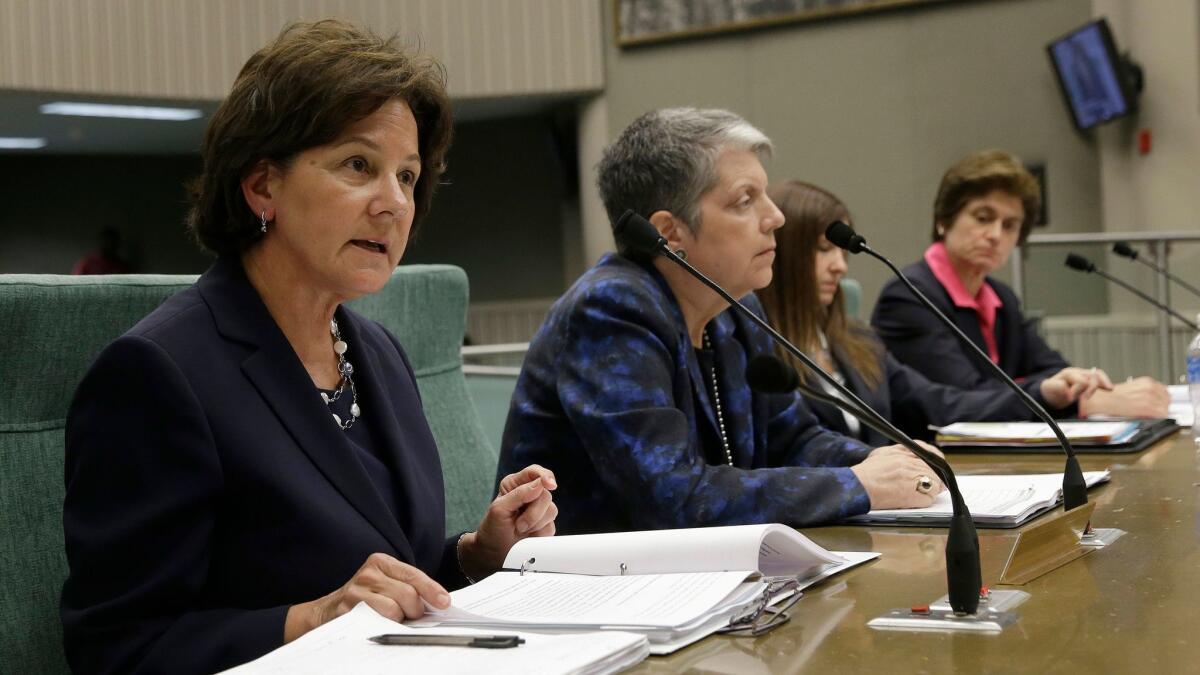State senator to introduce a constitutional amendment to limit UC’s 138-year-old autonomy

- Share via
The University of California, under fire for controversial budget practices, would lose the autonomy it has enjoyed for 138 years under a state constitutional amendment proposed Tuesday.
The amendment suggested by state Sen. Ed Hernandez (D-Azusa) would give the Legislature the power to directly fund the UC Office of the President, which is currently supported by campus fees. Such legislative control was recommended in a recent state audit, which found that central administrators in the office failed to disclose a $175 million surplus, did not adequately justify spending on presidential initiatives and paid unusually generous salaries. UC disputed some findings but has agreed to the audit’s 33 recommended reforms.
The bill faces tough odds. First, it would have to pass the Legislature, which has rebuffed two previous attempts in recent years to limit UC’s autonomy. Second, voters would have to agree to amend the Constitution.
Hernandez acknowledged this but said, “We need to have a real conversation about how do we make the regents accountable to the students of California. This constitutional amendment is the start of that conversation.”
To broaden representation on the UC Board of Regents, the bill would expand membership and voting rights to the California Community Colleges chancellor, three more students, two faculty members and a staff member. Regents’ terms would be reduced from 12 years to four — although reappointment to as many as three terms would be possible. The UC president would lose voting rights and become a non-voting regent.
Hernandez said too many regents were out of touch. “Some of them don’t know what it is to be a struggling student,” he said.
Several regents have spoken out against direct legislative control of UC, saying that it was under an autonomous board that the 10-campus system developed into the nation’s top public research university.
UC received its autonomy under an 1879 revision of the California Constitution — a “watershed moment,” according to a 2015 analysis by John Aubrey Douglass, a UC Berkeley senior research fellow, — which allowed it to create an academic culture and public mission “relatively free of the often contentious political interventions found in many other states.”
Regent John A. Pérez, a former Assembly speaker, said concerns over UC budget practices were legitimate but should be addressed by regents rather than legislators.
“The level of depth that’s required to right-size this and to deal with the complexity is appropriately, both constitutionally and functionally, with this board,” he said at the regents meeting last week.
To read the article in Spanish, click here
Twitter: @teresawatanabe
More to Read
Sign up for Essential California
The most important California stories and recommendations in your inbox every morning.
You may occasionally receive promotional content from the Los Angeles Times.











